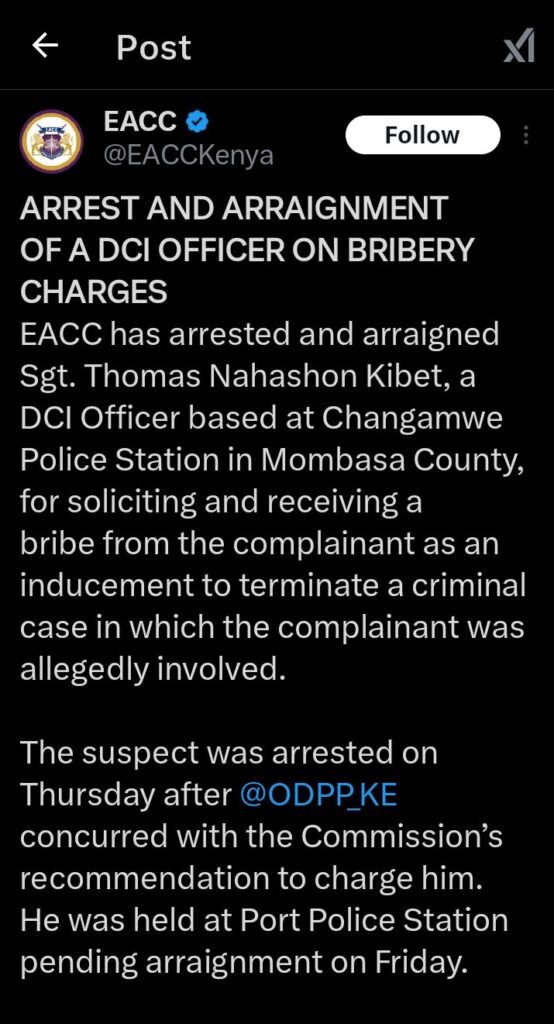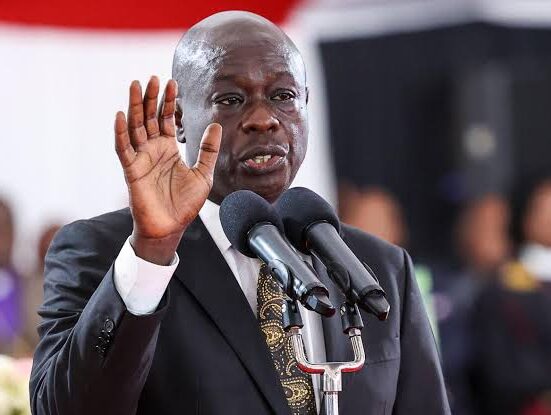Detectives from the Ethics and Anti-Corruption Commission (EACC) arrested Sgt. Thomas Nahashon Kibet, a DCI officer based at Changamwe Police Station in Mombasa County, for allegedly soliciting a bribe.
The arrest followed accusations that the officer demanded money from a complainant in exchange for terminating a criminal case involving the same complainant.
The EACC stated that Sgt. Kibet was arrested on Thursday after the Office of the Director of Public Prosecutions (ODPP) agreed with their recommendation to charge him. Following his arrest, he was detained at the Port Police Station and later arraigned in court on Friday to face the allegations against him.

This case highlights the ongoing issues of corruption within public offices, including law enforcement, which has been a persistent challenge in Kenya.
The charges against Sgt. Kibet relate to an incident that allegedly took place on June 6, 2018.
The prosecution revealed that while working as a Corporal and DCI officer at Changamwe Police Station, Sgt. Kibet allegedly requested a bribe of KES 20,000 from a complainant.
It is claimed that he received an initial payment of KES 10,000 with the promise of compromising an investigation and ensuring the termination of the complainant’s criminal case.
Such actions, if proven, undermine the integrity of the justice system and erode public trust in institutions meant to uphold the law.
When Sgt. Kibet appeared in court, he denied all charges brought against him.
The court granted him bail, allowing him temporary freedom as the case proceeds.
His next hearing date has been set, and the legal process will determine his guilt or innocence.
The outcome of this case will be closely watched, as it has implications for the fight against corruption and abuse of office within the country’s police force.
The arrest and arraignment of Sgt. Kibet demonstrate the efforts by the EACC to address corruption within public institutions.
However, it also raises questions about how deep corruption runs in key sectors of government and law enforcement.
Cases like this emphasize the need for stronger measures to ensure accountability and prevent such practices from occurring in the first place.
Public officers are expected to uphold the highest standards of integrity, and when they fail to do so, it tarnishes the reputation of the institutions they represent.
The fight against corruption requires collective action from all sectors of society, including citizens, government agencies, and oversight bodies.
It is critical for the EACC and ODPP to continue their work in ensuring that those involved in corruption face the full force of the law.
This case serves as a reminder of the importance of maintaining transparency and accountability in public service to rebuild trust in the justice system.












Leave feedback about this